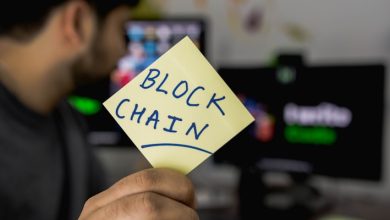The Role of AI in Enhancing Blockchain Technology

- The Intersection of AI and Blockchain Technology
- Utilizing AI for Improved Blockchain Security
- The Potential of AI in Streamlining Blockchain Processes
- Enhancing Blockchain Scalability through AI
- AI-Powered Solutions for Blockchain Interoperability
- The Future of Blockchain Technology with AI Integration
The Intersection of AI and Blockchain Technology
Artificial Intelligence (AI) and blockchain technology are two groundbreaking innovations that have the potential to revolutionize various industries. The intersection of AI and blockchain technology is a powerful combination that can enhance the capabilities of both technologies.
AI can be used to optimize blockchain networks by improving their efficiency and security. Through AI algorithms, blockchain systems can be made more resilient to cyber attacks and fraudulent activities. Additionally, AI can help in automating various processes within blockchain networks, making them more scalable and cost-effective.
On the other hand, blockchain technology can provide a secure and transparent platform for AI algorithms to operate. By using blockchain’s decentralized and immutable ledger, AI systems can securely store and share data without the risk of tampering or unauthorized access. This can help in building trust among users and ensuring the integrity of AI-driven applications.
Overall, the integration of AI and blockchain technology has the potential to transform industries such as finance, healthcare, supply chain, and more. By leveraging the strengths of both technologies, businesses can create innovative solutions that are secure, efficient, and reliable.
Utilizing AI for Improved Blockchain Security
Artificial Intelligence has emerged as a powerful tool in enhancing the security of blockchain technology. By leveraging AI algorithms, blockchain networks can detect and prevent potential threats in real-time, making them more resilient to cyber attacks. AI can analyze large volumes of data to identify patterns and anomalies that may indicate malicious activity, allowing for proactive measures to be taken to mitigate risks.
One of the key advantages of utilizing AI for blockchain security is its ability to adapt and learn from new information. Machine learning algorithms can continuously improve their threat detection capabilities by analyzing past incidents and incorporating new data to enhance their models. This dynamic approach to security enables blockchain networks to stay ahead of evolving threats and vulnerabilities.
AI can also be used to enhance identity verification processes on blockchain platforms, reducing the risk of unauthorized access and fraudulent transactions. By implementing biometric authentication and behavior analysis, AI-powered systems can ensure that only authorized users are granted access to the network, enhancing overall security.
The Potential of AI in Streamlining Blockchain Processes
Artificial Intelligence (AI) has the potential to revolutionize and streamline blockchain processes by enhancing efficiency and security. By leveraging AI algorithms, blockchain technology can be optimized to handle a higher volume of transactions with greater speed and accuracy. This can significantly reduce the time and resources required to validate transactions on the blockchain network.
Furthermore, AI can assist in identifying and mitigating potential security threats within the blockchain system. Through machine learning algorithms, AI can detect anomalies in the network and prevent malicious activities such as fraud or hacking attempts. This proactive approach to security can help ensure the integrity and trustworthiness of the blockchain ecosystem.
Moreover, AI can also be utilized to automate routine tasks within blockchain processes, such as data verification and smart contract execution. This automation can streamline operations, reduce human error, and improve overall system performance. By combining AI capabilities with blockchain technology, organizations can unlock new opportunities for innovation and growth.
Enhancing Blockchain Scalability through AI
Blockchain scalability is a significant challenge that the industry faces as it strives to handle an increasing number of transactions. One innovative solution that has emerged to address this issue is the integration of artificial intelligence (AI) technologies into blockchain networks. By leveraging AI algorithms, blockchain platforms can optimize their performance, increase transaction processing speeds, and enhance overall scalability.
AI can play a crucial role in improving blockchain scalability by providing real-time data analysis, predictive modeling, and automated decision-making capabilities. These AI-powered tools can help blockchain networks adapt dynamically to changing transaction volumes, identify bottlenecks, and optimize resource allocation for maximum efficiency. As a result, blockchain systems can scale more effectively to meet the demands of a growing user base without compromising on security or decentralization.
Furthermore, AI can enable blockchain platforms to implement innovative consensus mechanisms, such as proof of stake or sharding, that improve scalability without sacrificing security or decentralization. By leveraging AI-powered algorithms to validate transactions and secure the network, blockchain systems can achieve greater scalability while maintaining high levels of trust and reliability. This combination of AI and blockchain technology represents a powerful synergy that can drive the evolution of decentralized applications and digital ecosystems.
In conclusion, the integration of AI technologies holds great promise for enhancing blockchain scalability and unlocking new possibilities for decentralized applications. By harnessing the power of AI algorithms, blockchain platforms can overcome scalability challenges, improve transaction speeds, and enhance overall performance. This synergy between AI and blockchain technology represents a significant step forward in the evolution of decentralized systems and has the potential to revolutionize various industries in the coming years.
AI-Powered Solutions for Blockchain Interoperability
Blockchain interoperability is a crucial aspect of the blockchain technology ecosystem, allowing different blockchains to communicate and share data seamlessly. With the rise of AI technologies, AI-powered solutions are increasingly being utilized to enhance blockchain interoperability. These solutions leverage AI algorithms to facilitate the exchange of information and assets between disparate blockchain networks, making cross-chain transactions more efficient and secure.
One of the key benefits of AI-powered solutions for blockchain interoperability is their ability to automate the process of verifying and validating transactions across multiple blockchains. By using machine learning algorithms to analyze and interpret data from different sources, these solutions can ensure the accuracy and integrity of cross-chain transactions. This not only reduces the risk of errors and fraud but also improves the overall efficiency of the blockchain network.
Furthermore, AI-powered solutions can also help address the scalability issues that often plague blockchain networks. By using AI algorithms to optimize transaction processing and data transfer, these solutions can significantly increase the throughput and speed of cross-chain transactions. This is essential for supporting the growing demand for blockchain applications in various industries, from finance to healthcare to supply chain management.
Overall, AI-powered solutions for blockchain interoperability represent a cutting-edge approach to enhancing the functionality and performance of blockchain technology. By leveraging the power of AI algorithms, these solutions can enable seamless communication and collaboration between different blockchain networks, paving the way for the widespread adoption of blockchain technology in the digital economy.
The Future of Blockchain Technology with AI Integration
With the rapid advancements in artificial intelligence (AI) and blockchain technology, the integration of these two groundbreaking technologies is paving the way for the future of innovation. The combination of AI and blockchain has the potential to revolutionize various industries by enhancing security, efficiency, and transparency in data management.
One of the key advantages of integrating AI with blockchain technology is the ability to automate decision-making processes. AI algorithms can analyze vast amounts of data and make predictions or decisions based on patterns and trends. By incorporating AI into blockchain systems, smart contracts can be executed automatically, reducing the need for manual intervention and streamlining operations.
Moreover, AI can enhance the security of blockchain networks by identifying and mitigating potential threats or vulnerabilities. Machine learning algorithms can detect suspicious activities and prevent unauthorized access to the blockchain, thus ensuring the integrity and confidentiality of data stored on the network.
In addition, the integration of AI with blockchain technology can improve the scalability and performance of decentralized applications (dApps). AI algorithms can optimize resource allocation and improve the speed of transactions on the blockchain, making it more efficient and cost-effective for users.
Overall, the future of blockchain technology with AI integration holds immense potential for transforming various industries and reshaping the way we interact with data. By harnessing the power of AI to enhance the capabilities of blockchain technology, we can unlock new opportunities for innovation and create a more secure and efficient digital ecosystem.



